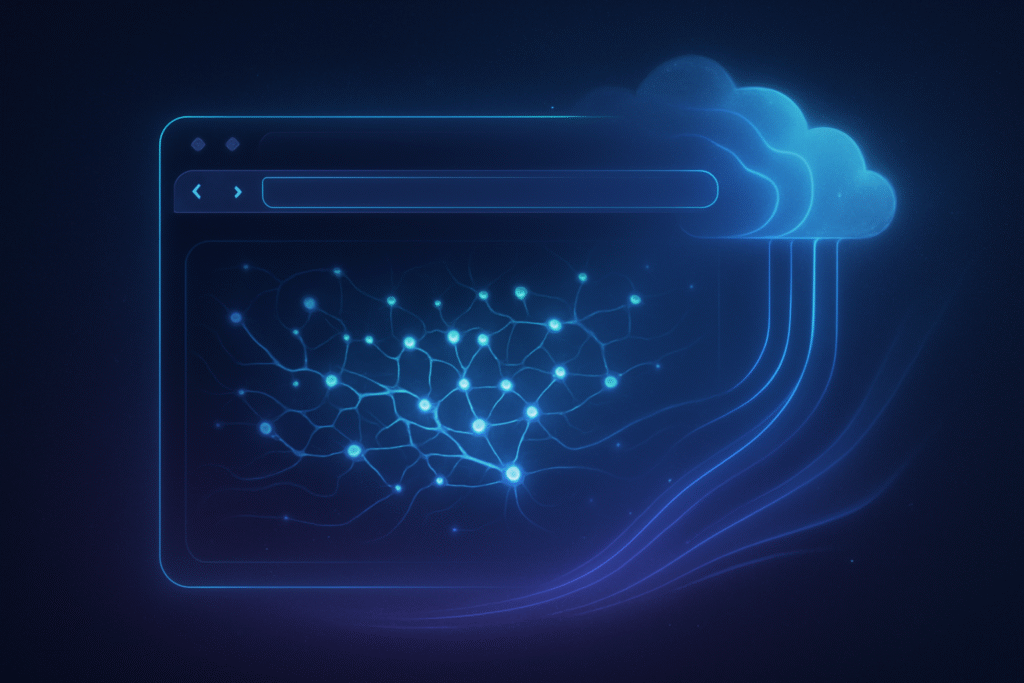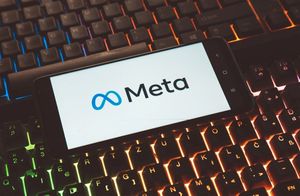Financial News
OpenAI Unveils ChatGPT Atlas: Redefining Web Browsing with AI at Its Core

In a move set to profoundly reshape the digital landscape, OpenAI officially launched ChatGPT Atlas on October 21, 2025. This groundbreaking AI-powered web browser aims to fundamentally redefine the online experience by seamlessly integrating advanced AI capabilities, including persistent memory, sophisticated task automation, and a deeply embedded intelligent assistant. OpenAI's ambitious foray into the browser market signals a significant shift from passive web navigation to an active, intelligent, and highly personalized interaction with the internet, positioning ChatGPT as a true "super-assistant" at the heart of daily digital life.
The launch of ChatGPT Atlas is not merely an incremental update to existing browsing technologies; it represents a bold strategic pivot by OpenAI to embed its powerful artificial intelligence directly into the user's primary interface with the web. By offering a browser where AI is not an add-on but the core operating principle, OpenAI (NYSE: OPENAI) is challenging the status quo and igniting a new era of "AI browser wars." This development promises to enhance productivity, streamline complex online tasks, and usher in a new paradigm of human-computer interaction, making the web more intuitive and responsive than ever before.
The Dawn of Agentic Browsing: Technical Prowess and Core Differentiators
ChatGPT Atlas is built upon the robust Chromium engine, the same open-source foundation that powers popular browsers like Alphabet's (NASDAQ: GOOGL) Chrome and Microsoft's (NASDAQ: MSFT) Edge. However, its fundamental departure lies in the deep, pervasive integration of OpenAI's ChatGPT directly into the browser's architecture, transforming it into an AI-first platform. This is a stark contrast to existing browsers that offer AI features as supplementary tools; Atlas makes ChatGPT an active, constant companion throughout the browsing journey.
The browser's technical capabilities are spearheaded by several innovative features:
- Integrated Memory ("Browser Memories"): Atlas incorporates an opt-in memory system that allows ChatGPT to recall key details from a user's browsing history, visited pages, and preferences. This enables the AI to provide more personalized responses, contextually relevant suggestions, and anticipate user needs more effectively. Users retain granular control over these memories, with options to view, archive, delete, or set site-specific visibility.
- Task Automation ("Agent Mode"): A standout feature, Agent Mode, available for ChatGPT Plus, Pro, and Business subscribers, empowers the AI to perform complex, multi-step tasks autonomously on the user's behalf. This can range from researching and planning a meal, creating an ingredient list, and adding items to a shopping cart, to drafting emails, filling out forms, or booking reservations. OpenAI emphasizes user control, allowing interruption, pausing, or manual takeover at any point, with strict safeguards preventing the agent from running code, downloading files, or installing extensions.
- Built-in Assistant Capabilities: ChatGPT is interwoven throughout the browsing experience. The "Ask ChatGPT Sidebar" allows for instant summarization, analysis, or task handling related to webpage content. In-line writing assistance is available in any form field, offering contextual suggestions and corrections. A smarter new tab page allows users to ask questions or enter URLs, providing organized results including search links, images, videos, and news, alongside contextual AI help.
This approach fundamentally differs from previous AI integrations, which often functioned as isolated chatbots or search enhancements. Atlas aims for a seamless, proactive AI-driven workflow that understands the current webpage, open tabs, and even a user's login status (with permission), creating an unparalleled contextual AI experience. Initial reactions from the AI research community and industry experts are largely positive, with many hailing it as a "game-changer" and a crucial step towards a "true super-assistant." OpenAI CEO Sam Altman described the launch as "a rare moment to rethink what it means to use the web." However, some skepticism remains, with analysts like Gene Munster of Deepwater Asset Management questioning if it offers a "10x better" experience than Chrome, given Google's resources and control over Chromium. Concerns about security vulnerabilities, such as "Clipboard Injection," and user data privacy have also been raised, though OpenAI asserts robust privacy controls.
Reshaping the AI and Tech Landscape: A New Competitive Frontier
The launch of ChatGPT Atlas has profound competitive implications, sending ripples across the AI industry, tech giants, and numerous startups. OpenAI's strategic move to control the user's primary internet interface positions it as a direct competitor to established players and a potential disruptor across multiple sectors.
For Google (NASDAQ: GOOGL), the impact is particularly acute. Atlas directly challenges Chrome's dominance in the browser market and, more critically, threatens Google's core search engine business and its massive advertising revenue. By enabling ChatGPT to act as the primary information retrieval and task execution agent, Atlas bypasses traditional search, potentially diminishing the need for users to navigate to Google Search. Alphabet's stock reportedly saw a decline following the announcement, reflecting investor concerns. Google is expected to accelerate its integration of Gemini AI into Chrome and its search services, focusing on multimodal AI and agentic capabilities to counter OpenAI's aggressive move.
Apple (NASDAQ: AAPL), while not a direct competitor in large-scale public LLMs, is also affected. With Atlas rolling out on macOS and planned for iOS, it directly competes for user attention within Apple's ecosystem. Safari and Apple's integrated services could face pressure from a more AI-native browsing experience. This development will likely compel Apple to significantly enhance Siri, transforming it into a more proactive and capable "agent" that can perform complex, multi-step tasks across its devices and the web, rivaling Atlas's functionalities. Apple will likely emphasize its strengths in on-device AI processing and robust privacy protections as key differentiators.
For other AI companies like Anthropic and smaller LLM developers, Atlas raises the bar for AI integration. They may face increased pressure to develop their own deeply integrated user interfaces or browser-like experiences to ensure their foundational models remain relevant. Startups in AI productivity, summarization, content creation, and task automation face a dual challenge and opportunity. Many niche AI tools may find their core functionalities absorbed by Atlas's native capabilities, forcing them to pivot or hyper-specialize. Conversely, Atlas could create new opportunities for startups to build highly specialized AI applications that integrate with or leverage the platform. Startups focusing on privacy-centric AI browsing solutions may also find a growing market segment. The overall competitive landscape will become more intense, favoring those with strong AI models and the ability to integrate them seamlessly into user workflows.
A New Paradigm: Wider Significance and Societal Implications
ChatGPT Atlas marks a significant inflection point in the broader AI landscape, signaling a clear shift towards agentic AI systems becoming mainstream. This development is not merely about a better browser; it's about embedding an active, intelligent AI agent at the core of how humanity interacts with the digital world. It pushes beyond the reactive chatbot model, positioning AI as a proactive co-pilot that understands intent, makes decisions, and performs complex tasks autonomously. This move by OpenAI signifies an ambition to transform from a chatbot platform into a comprehensive technology ecosystem, aiming to acquire user data, unlock new revenue streams, and reduce dependence on other tech giants.
The potential impacts on society and technology are far-reaching. Atlas promises to redefine internet interaction and personalization, offering a deeply contextual and adaptive browsing experience. Its Agent Mode could dramatically enhance personal and professional productivity by automating multi-step online tasks, freeing users from mundane digital chores. However, these advancements come with significant privacy concerns. Atlas's "browser memories" feature, while offering personalization, involves extensive data collection, potentially surpassing even Google Chrome's tracking. Cybersecurity specialists have warned about potential data leakage and "prompt injection" risks, where malicious instructions hidden in web content could trick the AI agent into disclosing sensitive information or performing unintended actions. While OpenAI has implemented safeguards and offers user controls over privacy settings and incognito modes, critics argue that the complexity of these controls may obscure the true extent of data processing.
Comparing Atlas to previous AI milestones, it builds directly on the breakthroughs of large language models like GPT-3 and GPT-4, which popularized conversational AI. While early search engines revolutionized information retrieval, and the original ChatGPT made AI widely accessible, Atlas represents a tangible realization of "agentic AI" in a mainstream consumer application. It moves beyond AI summarizing a document or answering a question to actively interacting with the web for the user, blurring the lines between user action and AI autonomy. This development intensifies the "AI browser war," with competitors like Perplexity AI's Comet and Microsoft's (NASDAQ: MSFT) Edge with Copilot also vying for market share, but OpenAI's unique advantage lies in owning the underlying AI model, potentially offering a more seamless and powerful integration.
The Horizon of AI Browsing: Future Developments and Challenges
The launch of ChatGPT Atlas is merely the opening chapter in what promises to be a rapidly evolving landscape of AI-powered browsing. In the near term, OpenAI is committed to expanding Atlas's availability beyond macOS to Windows, iOS, and Android, ensuring broad accessibility. Enhancements to its integrated AI assistance, smarter search capabilities, and in-line writing help are expected to become more refined and intuitive. The "browser memories" feature will likely evolve, offering even more sophisticated personalization while maintaining user control.
Looking further ahead, OpenAI's long-term vision positions ChatGPT not just as a super-assistant but as the "operating system for your life," a fully connected hub for managing daily tasks and achieving long-term goals. This trajectory includes:
- Enhanced Multimodal Capabilities: Future iterations, potentially powered by GPT-5, will likely process and understand a wider array of data types—text, images, voice, and even video—simultaneously, leading to more natural and intuitive interactions.
- Deeper Integration: Expect ChatGPT Atlas to integrate more profoundly with other AI technologies and third-party applications, creating comprehensive AI ecosystems that extend beyond the browser.
- Advanced Personalization and Context Awareness: The AI will become even more adept at learning individual preferences, habits, and nuanced intent, offering hyper-personalized experiences across all digital interactions.
- Agentic Evolution: The Agent Mode is expected to grow in sophistication, capable of handling increasingly complex and abstract tasks, potentially even managing multiple parallel workflows autonomously.
Potential applications and use cases on the horizon are vast, spanning personal productivity (scheduling, task management), content creation (AI as a creative partner), customer service, education, healthcare (diagnosis, treatment planning, drug discovery), e-commerce, and cybersecurity. AI will become an indispensable tool for data analysis, enabling businesses to unlock deeper insights and optimize operations.
However, this ambitious future is not without its challenges. Technical hurdles include refining common sense reasoning, ensuring scalability and efficiency of AI models, and establishing interoperability standards. Data-related challenges involve maintaining high data quality, managing vast datasets, and mitigating inherent biases in training data. Ethical and regulatory concerns are paramount, particularly regarding user privacy, data security, transparency, and explainability of AI decisions. The potential for AI "hallucinations" and misuse necessitates robust safety protocols. Furthermore, the societal impacts of job displacement and widening inequalities due to automation will require careful consideration and proactive policy development. Organizations also face adoption challenges, including skill gaps, cost, and potential employee resistance to new AI-driven workflows.
Experts predict an intensifying "AI browser war," with all major tech players rushing to integrate more sophisticated AI. The future of browsing will shift towards agentic models, where AI proactively completes tasks on behalf of the user. User adoption will hinge on performance, reliability, and, critically, trust. Ensuring data privacy, security, and transparent AI governance will be paramount. The ethical implications of powerful AI agents acting autonomously will demand ongoing scrutiny and robust frameworks to guide their development and deployment.
A Defining Moment in AI History
OpenAI's launch of ChatGPT Atlas represents a monumental leap in the integration of artificial intelligence into everyday digital life. It signifies a pivotal moment where the web browser transcends its traditional role as a mere window to the internet, evolving into an intelligent, proactive, and deeply personalized digital assistant. The key takeaways are clear: AI is moving from being a separate tool to an embedded, agentic core of our online interactions, promising unprecedented levels of productivity and convenience.
This development holds immense significance in AI history, marking a tangible realization of the long-anticipated vision of an intelligent agent that can understand context, remember past interactions, and execute complex tasks across the vast expanse of the internet. It sets a new benchmark for what users can expect from their digital tools, fundamentally reshaping the competitive landscape for tech giants and AI startups alike.
In the coming weeks and months, the tech world will be watching closely. Key aspects to observe include the rate of user adoption, how quickly competitors respond with their own advanced AI browser integrations, the evolution of privacy controls and user data management, and the emergence of new, unforeseen applications and challenges. OpenAI's ChatGPT Atlas is not just a new product; it's a bold declaration of a future where AI is inextricably woven into the fabric of our digital existence, prompting us to rethink the very nature of our online lives.
This content is intended for informational purposes only and represents analysis of current AI developments.
TokenRing AI delivers enterprise-grade solutions for multi-agent AI workflow orchestration, AI-powered development tools, and seamless remote collaboration platforms.
For more information, visit https://www.tokenring.ai/.
More News
View More




Recent Quotes
View More
Quotes delayed at least 20 minutes.
By accessing this page, you agree to the Privacy Policy and Terms Of Service.



